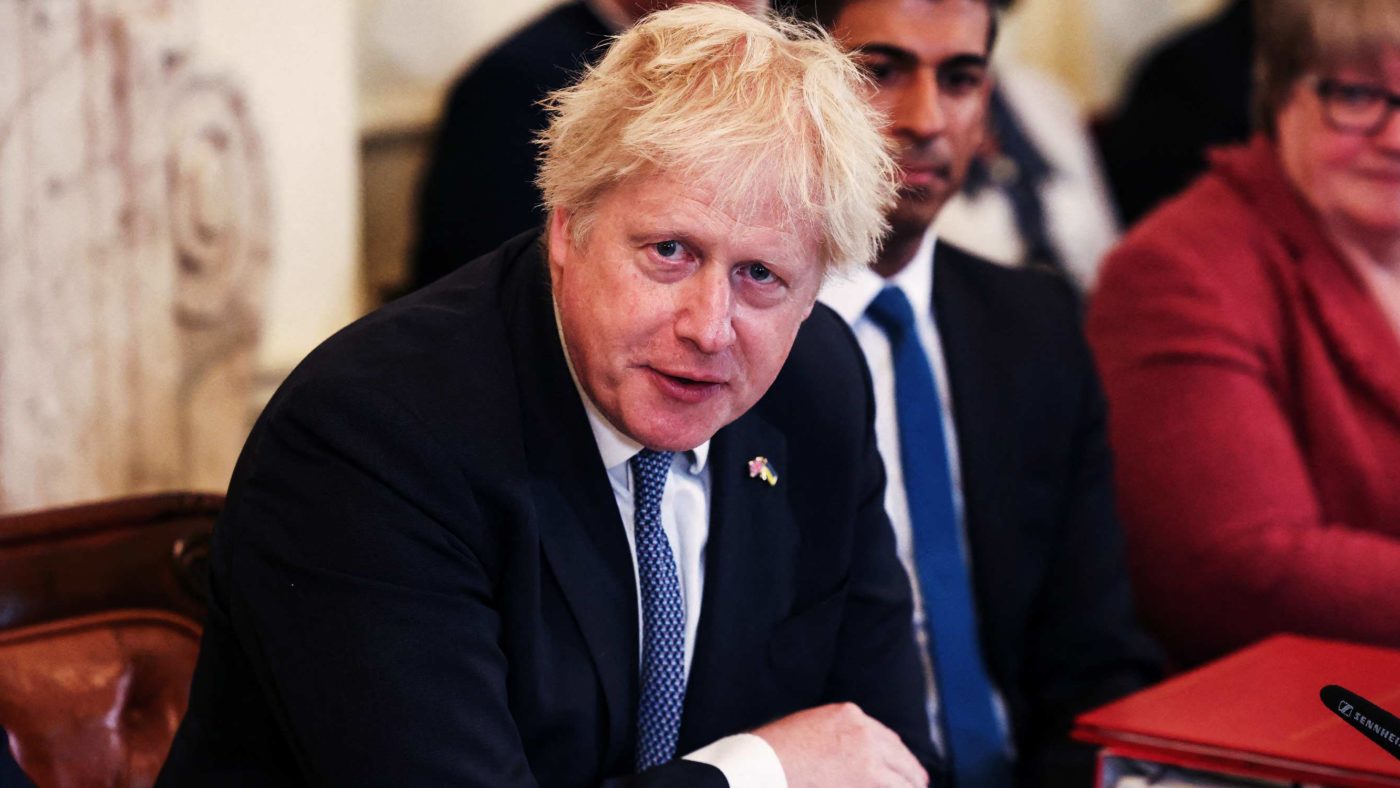Today, the Government will publish its plan to address the Irish Sea border, and the reaction will almost certainly be overstated and shrill. The bill, presented by Foreign Secretary Liz Truss, is expected to contain three significant proposals.
Firstly, the legislation will create a ‘green lane’ for trusted traders selling goods from Great Britain to Northern Ireland. It would remove most of the checks and paperwork that currently affect domestic goods arriving in the province. This is probably the least controversial aspect of the bill.
However, it does fall short of restoring Ulster’s full place in the British internal market, which is what most unionist critics of the Protocol have demanded. Joining the scheme is likely to involve some costs and administration, which means that small traders may decide not to bother.
The Traditional Unionist Voice leader, Jim Allister, who is a QC with a mastery of legal detail, articulated unionist reservations about this point when he wrote recently:
‘Green and red customs lanes confirm in themselves that in moving from Great Britain to Northern Ireland you are moving from one customs to territory to another… (they) confirm the partitioning of the UK through a border in the Irish Sea.’
This important argument over symbolism shows that, whatever the Government’s legislation is intended to achieve, it will not ‘bust’ or ‘sink’ the Protocol entirely. The idea that the proposals will represent an ‘extreme’ solution to trade barriers, designed to ameliorate hardline Tory Eurosceptics, is not credible. The legislation will simply try to address the most glaring practical and constitutional issues created by driving a full customs and regulatory border through the middle of a nation state.
The second important strand of the bill is expected to deal with differences in the regulatory and tax regimes in Great Britain and Northern Ireland. The Protocol required Ulster effectively to follow EU single market rules for goods and agriculture, as well as harmonising some of its taxes with the bloc.
The legislation will propose a ‘dual regulatory’ regime, effectively meaning that goods that follow British rather than European rules can be sold in the Northern Ireland market. The Government claims it will be empowered to set taxes across its territory, without being bound by the EU in Ulster.
The third critical element of the bill will be to give British courts, rather than the European Court of Justice (ECJ), the final judgement on matters relating to the Protocol. The ECJ will, though, retain a role, under the Government’s plans. This aspect of the legislation will be scrutinised closely by unionists, like Mr Allister, to determine whether it meets the test of restoring full UK sovereignty over Northern Ireland.
The DUP would like an excuse to go back into the devolved executive at Stormont with Sinn Fein. But its leader, Jeffrey Donaldson, will be aware that the TUV ate into his party’s support significantly at the recent Assembly election. He will be wary of making concessions if the bill does not amount to an effective solution to the Protocol.
As a package, these measures resemble most closely the ‘command paper’ that Lord Frost and Brandon Lewis published last year. At the time, I wrote that the Government’s plans then represented the ‘least’ that unionists could accept, in terms of restoring Northern Ireland’s full place in the UK.
That’s why the criticisms of this bill, particularly from Johnson’s Tory opponents, are likely to be so exaggerated and so far off the mark.
The idea that the legislation will represent an outrageous breach of international law, rendering Britain some kind of pariah state, is particularly silly. There are many examples of states or blocs prioritising their own interests over strict legal writ and, in any case, the argument that the law will be broken is highly contestable.
Many of the most vicious criticisms of the bill come from Irish nationalists and their allies, who are desperate to realign Northern Ireland with the Republic of Ireland’s economy and distance it from Great Britain. Other critics have cheered the EU and lacerated the UK consistently through every turn of the post-Brexit negotiations, while scarcely stopping to consider how its position would affect Ulster.
If this bill ever reaches the statute book – and that is hardly assured given Boris Johnson’s current struggles – it will maintain an internal UK border between Great Britain and Northern Ireland. The Protocol, although it will operate differently, will still be in place.
Remember that the EU originally insisted it was necessary to ameliorate the ‘risk’ of goods entering the bloc via Ulster. Rather than show flexibility about how this could be achieved, as it was bound to do under the terms of the Protocol, it then used the Irish Sea border to manipulate Britain and attempt a power-grab over the Northern Irish economy on behalf of its allies in Dublin.
This bill’s flaws will no doubt become apparent as the detail is teased out over the following days. It may or may not represent a first step toward repairing the damage that the Irish Sea border has inflicted on the UK and restoring Northern Ireland’s place in the Union.
There are plenty of reasons to criticise this Government and Prime Minister, but supposedly overstepping the mark with this bill is not one of them.
Click here to subscribe to our daily briefing – the best pieces from CapX and across the web.
CapX depends on the generosity of its readers. If you value what we do, please consider making a donation.


